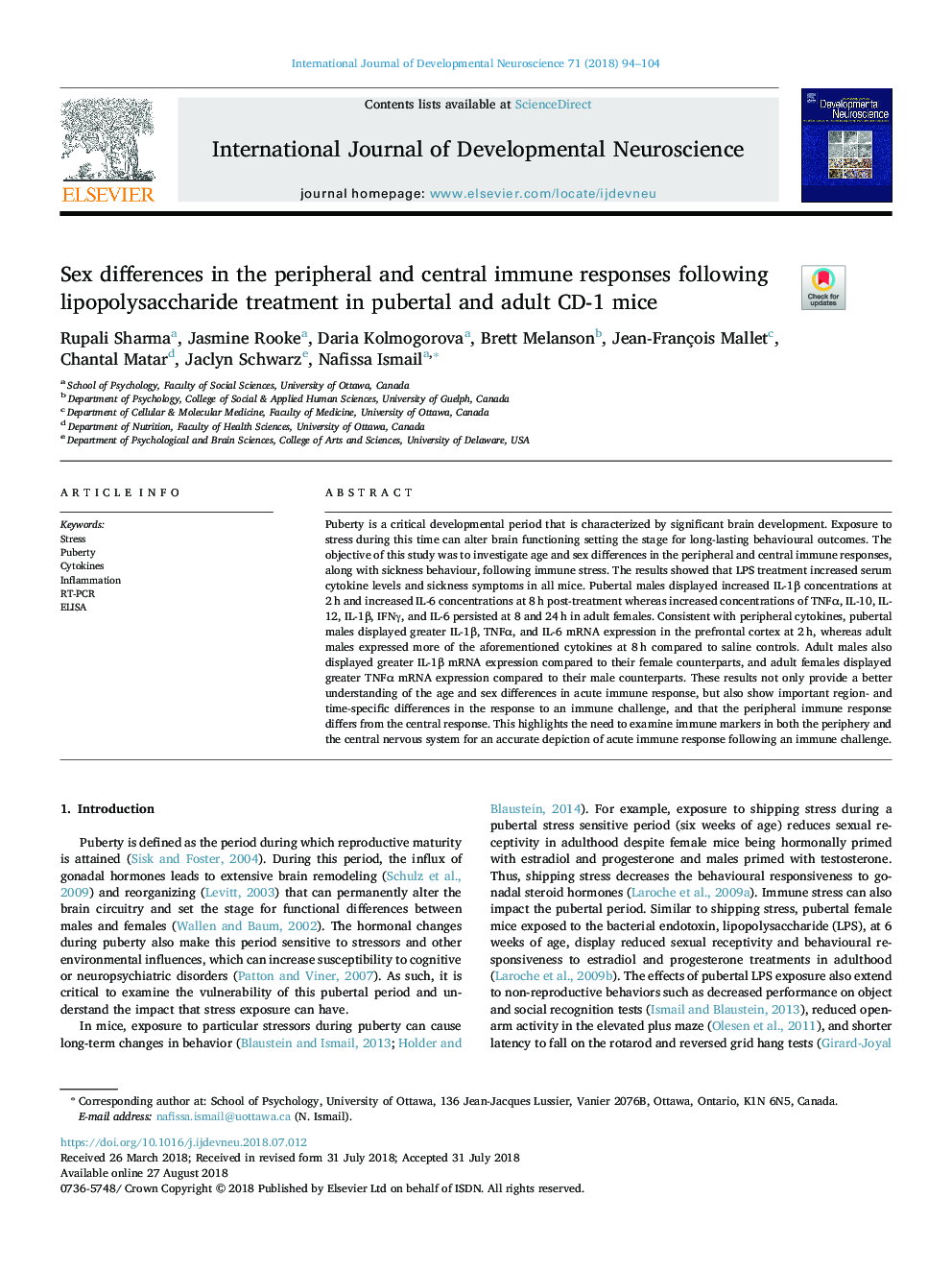| Article ID | Journal | Published Year | Pages | File Type |
|---|---|---|---|---|
| 9955253 | International Journal of Developmental Neuroscience | 2018 | 11 Pages |
Abstract
Puberty is a critical developmental period that is characterized by significant brain development. Exposure to stress during this time can alter brain functioning setting the stage for long-lasting behavioural outcomes. The objective of this study was to investigate age and sex differences in the peripheral and central immune responses, along with sickness behaviour, following immune stress. The results showed that LPS treatment increased serum cytokine levels and sickness symptoms in all mice. Pubertal males displayed increased IL-1β concentrations at 2âh and increased IL-6 concentrations at 8âh post-treatment whereas increased concentrations of TNFα, IL-10, IL-12, IL-1β, IFNγ, and IL-6 persisted at 8 and 24âh in adult females. Consistent with peripheral cytokines, pubertal males displayed greater IL-1β, TNFα, and IL-6 mRNA expression in the prefrontal cortex at 2âh, whereas adult males expressed more of the aforementioned cytokines at 8âh compared to saline controls. Adult males also displayed greater IL-1β mRNA expression compared to their female counterparts, and adult females displayed greater TNFα mRNA expression compared to their male counterparts. These results not only provide a better understanding of the age and sex differences in acute immune response, but also show important region- and time-specific differences in the response to an immune challenge, and that the peripheral immune response differs from the central response. This highlights the need to examine immune markers in both the periphery and the central nervous system for an accurate depiction of acute immune response following an immune challenge.
Related Topics
Life Sciences
Biochemistry, Genetics and Molecular Biology
Developmental Biology
Authors
Rupali Sharma, Jasmine Rooke, Daria Kolmogorova, Brett Melanson, Jean-François Mallet, Chantal Matar, Jaclyn Schwarz, Nafissa Ismail,
